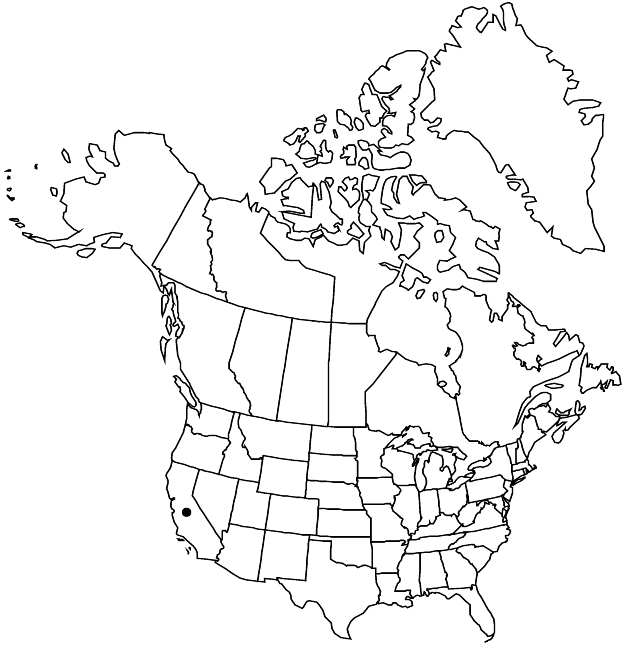Eriogonum truncatum
Proc. Amer. Acad. Arts 8: 173. 1870.
Herbs, erect, 1–4.5 dm, tomentose to floccose, grayish. Stems: aerial flowering-stems erect or nearly so, (0.1–) 0.2–0.6 (–0.8) dm, tomentose. Leaves basal and cauline; basal: petiole (1–) 2–5 (–7) cm, floccose, blade narrowly oblong to obovate, 1–5 (–7) × (0.5–) 1–2 (–3) cm, densely grayish-tomentose abaxially, floccose to glabrate and greenish adaxially; cauline: petiole (0.5–) 1–2 (–3) cm, floccose, blade narrowly oblong, (0.8–) 1–3 (–6) × 0.2–1 (–2) cm, similar to basal blade. Inflorescences cymose, open, (5–) 10–30 (–40) × 5–30 cm; branches tomentose to floccose; bracts 0.5–2 × 0.5–1 mm. Peduncles absent. Involucres terminal at tips of slender branchlets proximally, not appressed to branches, turbinate, 2.5–3.5 (–4) × 2–2.5 mm, tomentose; teeth 5, erect, 0.1–0.3 mm. Flowers (1.5–) 1.7–2 (–2.2) mm; perianth white to rose, glabrous; tepals essentially monomorphic, elliptic to oblong or obovate; stamens included, 1.5–2 mm; filaments glabrous; styles 0.2–0.3 mm. Achenes light-brown, 3-gonous, 1.7–2 mm; beak smooth.
Phenology: Flowering Apr–Aug.
Habitat: Sandy slopes, mixed grassland and chaparral communities, oak woodlands
Elevation: 200-400 m
Discussion
Of conservation concern.
Eriogonum truncatum is presumed extinct. It is known only from seven collections, most made in the Marsh Creek and Mt. Diablo areas of Contra Costa County. It was found also at Suisun in Solano County (Earle s.n., 3 Aug 1888, DUKE). Three collections are widely distributed in herbaria: M. L. Baker 2833, Marsh Creek, 28 Apr 1903 (B, CAS, F, MICH, MIN, MSC, NY, POM, RM, UC), M. K. Curran s.n., Antioch, May 1886 (CAS, CS, DS, ISC, JEPS, NY, POM, UC), and J. T. Howell 11816, 10 miles from Clayton on Marsh Creek Road, 8 Apr 1934 (CAS, DS, F, MICH, MIN, MO, MONTU, NY, UC, RSA). Eriogonum truncatum may be quickly distinguished from the morphologically similar E. roseum by its consistently dichotomously branched inflorescences, with each new branch curving upward gracefully from the node. The ultimate inflorescence branches of E. roseum are typically composed of several racemosely arranged involucres along a single, elongated branch.
Selected References
None.
Lower Taxa
"narrowing" is not a number."dm" is not declared as a valid unit of measurement for this property."dm" is not declared as a valid unit of measurement for this property.
